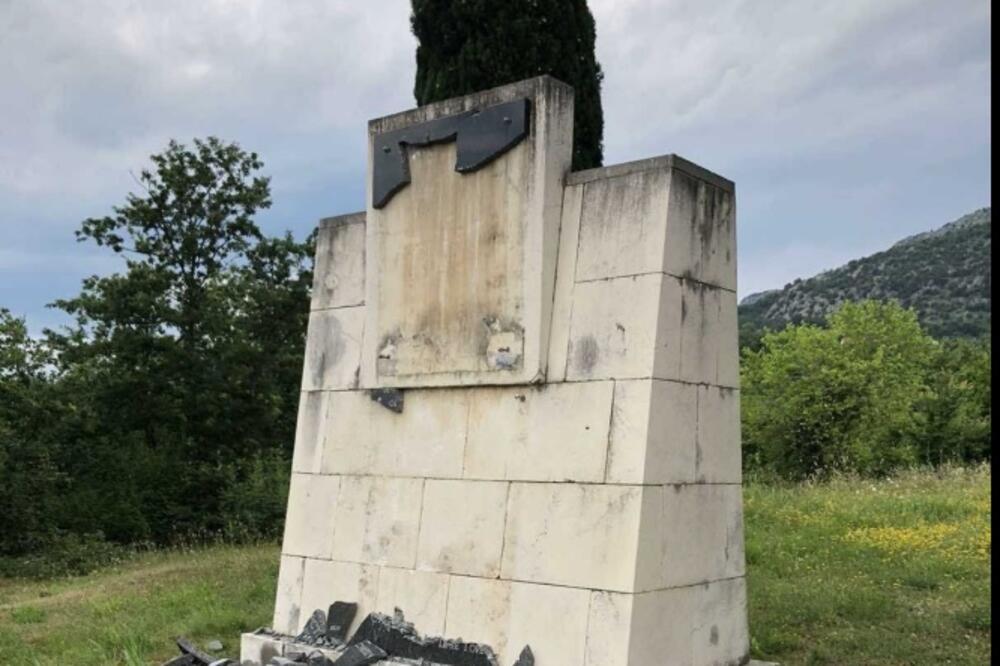Even something as elementary as the attitude towards monuments, here and today, can be a reason for incredible confusion and crazy misunderstandings. Hate, not only retroactive... As well as incredible rudeness, rudeness. You can recognize all this in such occasions as a recurring motif. Above ideology, nation, religion - it is rather a matter of mentality.
Why is it like that? On the one hand, you had an immediate, clear and unequivocal portrait of the culprit, even though it was not yet known who he was (although, truth be told, that psycho-portrait was not difficult to make), while the other side was equally sure that he was the only culprit actually the first party, which is the event, allegedly staged it. All this while the public doesn't even know who the culprit is.
The police, however, apparently found the culprit. But, in today's Montenegro, this does not necessarily reduce the existing public confusion. That's the problem: when the government here has undoubtedly used the volunteer method at least once, why should anyone believe that it won't be the same every time. Local statesmen do not understand this: it is not easy to restore trust in a once compromised system. All those games and games come at a price. But the one who thinks from today to tomorrow is usually not aware of that.
The memorial that, according to the police, caused the anger of the young man, is dedicated to a specific historical moment. It was there in 1941 that the decision to rise against the fascists was made. Even that story is not as simple as in the textbook. Although we were proud of some republican days of uprisings, it was known what was original... and what were copies. The July 13 uprising in Montenegro significantly surpassed the real power of the communist party at the time - it was truly a national uprising. Elsewhere, some local incidents or friendly gatherings in the forest were taken as the date of the uprising, but that simply wasn't the case... But that's another story.
Sartre did not write about the Third of July Uprising because he was persuaded to do so by some politician or some businessman, as is the case today. The man was delighted that such a thing was possible in a Europe that was groaning under the Nazi boot. It was proof that the true nature of Europe was not what the Nazi darks were talking about.
Speaking of darkness... Amfilohije and Milo, in fact their national-political tango, together created this kind of hatred and associated characters, from the early nineties to today, with several variations. As much as he is today a defender of anti-fascist values in Montenegrin history (even if he is completely honest about it), Đukanović was part of the closest team that, thirty years ago, delegitimized exactly that and such a legacy. Read about those days in the book by academicians Rastoder and Novak Adžić...
But who and why is that uprising hurting so much in Montenegro even today? What meanings of that event particularly irritate the haters? What and to whom do you want to say by breaking the marble slabs with the names of heroes? I believe that whoever did this for half the names on the marble slab in Ravni Laz doesn't even know who they are. (By the way - that list is also very interesting.)
From what story, poem, from what conversation does a person get the idea - I'm going to break partisan (or anyone else's) monuments? How do you get into that kind of darkness? Why is the darkness here still seductive for someone, and who is to blame?
***
Although born after the war, in the no less dramatic forty-eighth year, Momir Marković was one of the last "partisans" in Montenegrin literature... But also an unwavering comita, always. Poet of emancipation and Montenegrin resistance, unwavering leftist, one of the few independentists who, when that option won, did not surrender to the siren call of obedience and service to Power. And when he wrote about the eternal Montenegrin war, Momir was first and foremost a poet. It remained until the end. It's all worth remembering.
Bonus video:





